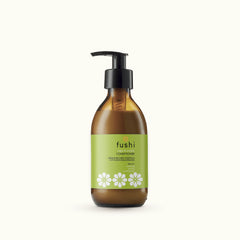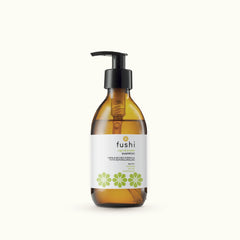What is the difference between Marula oil and Argan oil
You might have heard of Argan oil which became widely known and popular a few years ago, but Marula oil has arrived and people are starting to discover this miracle oil to reap the benefits. Marula oil recently hit the beauty industry like a storm.
The two oils are similar in quite a few ways. They can be used for both food and beauty purposes. But the question is: Which one is best for you? How are they different?
What is Marula oil?
Marula oil, also known as the "miracle oil", is extracted from the seed kernels of the Marula tree, a fruit native to Kenya. It can be found in Southern Africa and Madagascar where the climatic conditions of a low rainfall and hours of sunlight each day, enable the Marula tree to thrive.
Marula oil has been used for centuries by Southern African men and women to protect their skin from the harsh weather conditions, and has remained one of their most treasured beauty secrets. Purchasing Marula oil is an ethical choice because the production is many people livelihoods, providing an income for families of Southern Africa.
Marula oil for the Skin
Marula oil is rich in both Vitamin C & E, which when are topically applied together, prevent and treat sun damage. They should not be used instead of SPF creams and sun protective clothing.
Marula oil is a brilliant oil to add to your haircare routine, because of the nourishment its vitamin C provides. There is eight times as much vitamin C in the Marula fruit than there is in an orange. This means it is an excellent fruit to eat to help make the immune system strong whilst building collagen and elastin in the body, which is essential for skin, hair and bone health.
We lose the vitamin C in our skin as we age, so applying it topically help keep the levels in your skin topped up. Applying vitamin C promotes collagen production to fight the signs of aging by brightening the complexion and improving skin elasticity. Vitamin C rejuvenates the skin by reducing the appearance of redness, discolouration, fine lines and wrinkles.
This is great for dull, tired skin. This powerhouse vitamin also protects against sun damage, improves hydration, speeds up healing of scars, treats discolouration and can even reduce dark under eye circles. The vitamin C content in Marula oil can assist you in your quest for smooth, firm and glowing skin.
The antioxidants found in the oil, including vitamin E, help protect and repair free radical damage from environmental stressors.
Marula oil for the Hair
Rubbing Marula oil into the hair cuticles is great for treating split ends and for promoting lustrous, silky shiny hair. This is because of the high amount of antioxidants that make Marula oil a nourishing choice for the health of your hair.
The oil works well on curly, thick or frizzy hair.
Marula oil is a great choice for thick hair because its heavier consistency is more hydrating, and the fatty acids form a protective coating around the hair shaft that seals in moisture.
What is Argan Oil?
Argan oil is extracted from the Moroccan Argan tree's kernel and is harvested by the Berber women through labour intensive hard work. It can take up to eight hours for one woman to extract one litre of oil from the nut. Argan oil has an amber, golden colour, and is also known as "the liquid gold of Morocco".
Argan oil for the Skin
As Argan oil is non-comedogenic, it is unlikely to clog pores, making it ideal for supporting acne. Argan oil's high vitamin E (tocopherol) content is excellent for fighting the free radical damage caused by environmental stressors, such as sun damage and air pollution - both leading causes of premature aging.
Squalene, is produced by our own skin cells, but also found in plant sources. When consumed, it can protect against some cancers.
Carotenoids are abundant in foods such as Carrots and Sweet potato whilst being another wonder ingredient of Argan oil. These carotenoids are great for maintaining eye health and preventing macular degeneration. Making sure you opt for a food grade Argan oil is essential to ensure that this can be used for cooking and putting on salads too.
Ferulic acid is an antioxidant that destroys free radicals and protect against UV damage. Luckily for us, this is great news for the health of our skin and hair. Its anti-oxidant and anti-inflammatory properties do wonders for strong hair growth. Natural antioxidants found in Argan oil help fade scars and age spots. Polyphenols have an important antioxidant activity too which have the same effect.
Argan oil for the Hair
Argan oil is suitable for straight, curly, thin or fine hair.
The vitamin E and essential fatty acids in Argan oil work well to condition straight hair, but due to it's light-weight formula can enhance curls, adding volume and texture.
Marula oil vs Argan oil - Similarities
Here are some of the most important points you can´t miss about Marula vs Argan oil:
- Both full of antioxidants that fight the signs of aging.
- Both rich in Vitamin E, supporting the skin in healing and repair.
- Both contain nourishing essential fatty acids of oleic acid and linoleic acid.
- Both have a long shelf life that resists oxidation.
- Both oils contain plant sterols - natural compounds found in fruit and vegetables that boost epidermal moisture retention when consumed and strengthen the protective skin barrier.
- Both smooth and condition the hair.
Marula oil vs Argan oil - Differences
| Marula Oil | Argan Oil |
| Contains Vitamin C | Does not contain vitamin C |
| Contains a small amount of vitamin E | Rich in vitamin E |
| Does not contain Ferulic acid | Contains Ferulic Acid |
| Rich in phytosterols | Contains a small amount of phytosterols |
| Best for dry and/or aging skin and sun-damaged skin | Best for Acne Prone and oily skin |
| Does not contain a large concentration of carotenoids | Rich in carotenoids |
| High in Oleic Acid (70-78%), with only a little Linoleic Acid (4-9%). Heavy, deeply moisturising oil | Argan Oil has a more balanced ratio between Oleic and Linoleic Acid, which means its less heavy than Marula Oil |
Marula oil vs Argan oil for your skin type
| Skin Type | Oily | Dry | Combination | Sensitive | Acne | Sun-Damaged | Aging | Dull | ||||||
| Marula oil |
|
|
|
|
||||||||||
| Argan oil |
|
|
|
|
|
|
How to Use the Oils
David Colbert, a dermatologist in New York City, said to Allure magazine, that 'when you apply an oil before your anti-aging cream, the oil molecules behave like tiny Trojan horses, tricking the skin into letting active ingredients like retinol, glycolic acid, and vitamin C deeper into the skin and closer to the collagen-producing fibroblasts, all without irritating the surface'.
This, in short, is a good thing! Applying an oil before your moisturiser can act as a serum, and it is important to apply the products in this order as you should always apply lighter consistencies first and the heavier second. This enables better penetration into the skin so that it can soak up all of those vitamins and minerals our skin.
Alternatively, you could add a few drops of either oil to your moisturiser for an added boost of revitalising goodness. A great idea for when you are after that glowing, dewy skin look.
Another skincare use for these oils is as facial massage oils. Self-massage is a form of self-care which can be very therapeutic and can be done when you are watching your favourite TV show or listening to music you love.
Massaging these oils into your skin will enhance the effects of their properties, as the touch increases circulation and in turn increases the amount of nutrients your blood can bring to the skin. It also allows the magical ingredients of the oil to penetrate deeper into the skin layers.
Another use is rubbing the oils into the ends of your hair as a leave-in conditioner. This will provide extra nourishment, especially for hair that has been damaged or coloured.
You can also use it as a hair treatment before you shampoo. Simply massage the oil into your scalp. Take time to massage it in circular motions, as this will stimulate the hair follicles and increase the blood flow of nutrients to allow your hair to grow stronger, softer, shinier and healthier. Sounds good, right? Finish the process by combing it through to the ends and leave on for 15 to 20 minutes before washing off in the shower. The result? Well, you will see!
How to choose a good quality oil
Here are the best tips for buying a good quality oil:
- Look for unrefined and cold pressed oils as these have 700% more bio-active compounds than oils extracted with heat.
- Look for the Soil Association logo or the USDA organic certified logo for organic products which can guarantee that the product has been produced ethically and sustainably. You can also check this by the sight and smell as organic, unrefined oil is dark golden in colour and will have a nutty aroma, whereas non-organic oils will have no aroma and a light colour. It won't be pure even if it uses this word on the bottle.
- Check the ingredients list. Check for filler ingredients such as petroleum and mineral oil, which have the potential to be bad for your skin.
- Choose dark coloured bottles, as clear glass means that heat and light can damage the oils.
- Cheaply priced oils will be of poor quality, most likely. Organically labelled cold pressed oils will have been made through a labour intensive process to achieve good quality.
- Check the expiration date. If there is five years or more until the oil expires, it is not unrefined.






